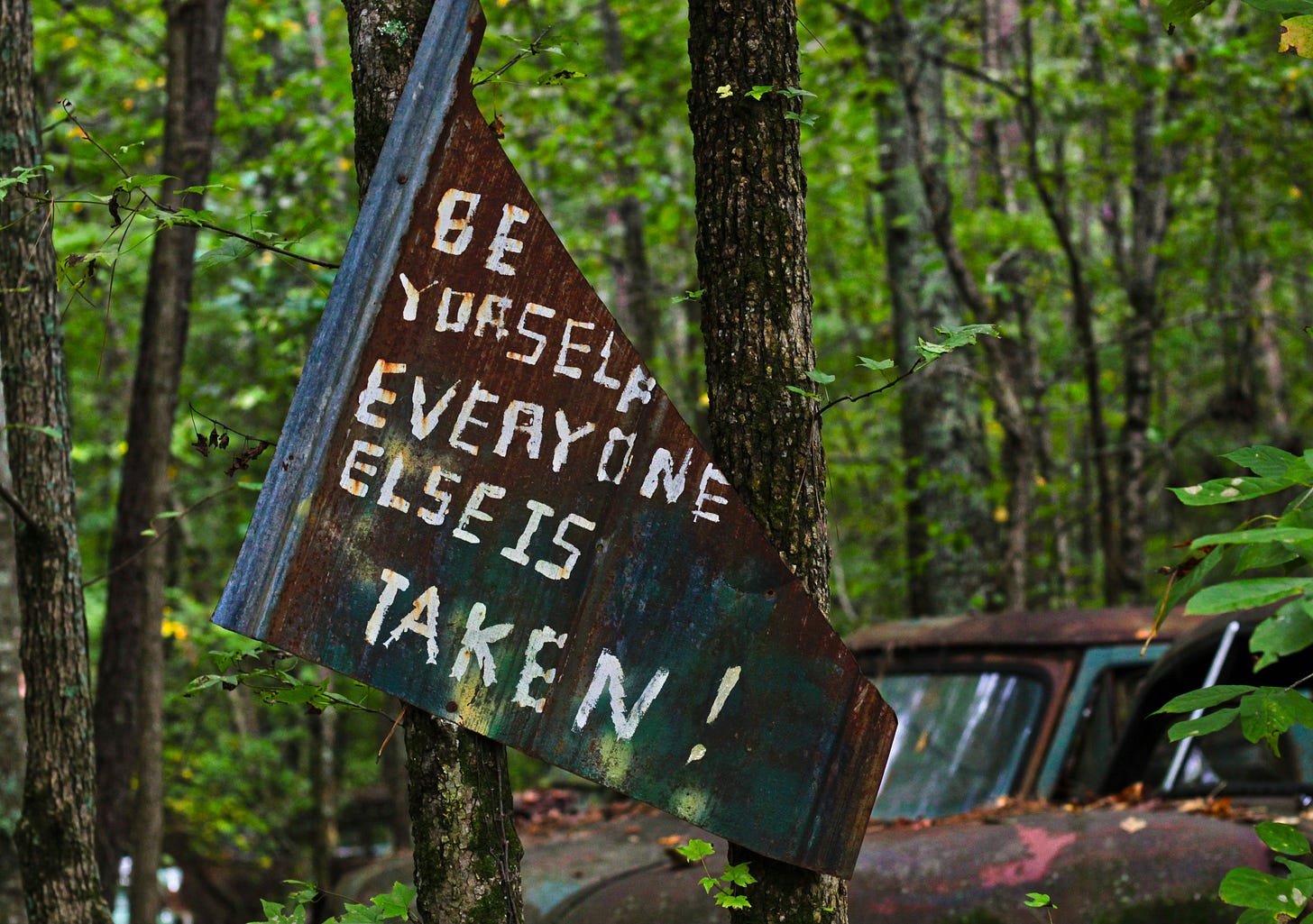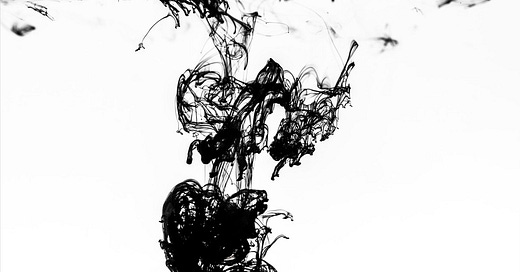#33 The Truth of Knowing Yourself
Tao Te Ching, Chapter 33: The path toward self-fulfillment and mastery: Know yourself, prioritize, and accept genuinely.
Welcome back to The Wisdom of Lao Tzu.
We are reading chapter 33 of Tao Te Ching this week.
Lao Tzu delves into several moral aphorisms in this chapter, highlighting the significance of self-awareness and perseverance.
Within the Taoist system, the exploration of self-knowledge and self-discovery is foundational. Numerous challenges we encounter in the world stem from a lack of understanding of our true nature.
Let's explore Lao Tzu's insights on the importance of knowing oneself in greater detail.
**33**
知人者智,自知者明。
勝人者有力,自勝者強。
知足者富。
強行者有志。
不失其所者久。
死而不亡者壽。
Border-crossing: English translations
#1 Lin Yutang’s version
He who knows others is learned;
He who knows himself is wise.
He who conquers others has power of muscles;
He who conquers himself is strong.
He who is contented is rich.
He who is determined has strength of will.
He who does not lose his center endures.
He who dies yet (his power) remains has long life.
#2 Edmund Ryden’s version
To know others is wisdom;
To know oneself is insight.
To conquer others is to have force;
To conquer oneself is to be strong.
To know what is enough is to be rich;
To forcibly press on is to be ambitious.
To not lose what one has is to last;
To die yet not depart is to be long-lived.1
#3 D. C. Lau’s version
He who knows others is clever;
He who knows himself has discernment.
He who overcomes others has force;
He who overcomes himself is strong.
He who knows contentment is rich;
He who perseveres is a man of purpose;
He who does not lose his station will endure;
He who lives out his days has had a long life.2
Deeper dive
As Lao Tzu observes, the real challenge for us is knowing oneself.
In our quest to discover who we are, we will have a different perception of the world around us and our roles in it because we become both participants and conscious observers of our actions and trajectories.
From Lao Tzu’s perspective, knowing oneself is more important than knowing others. This is tied to the overall emphasis on self-discovery in Taoist thinking.
The most powerful enemy is one’s self. Thus, “To conquer oneself is to be strong.”
As He Shanggong (approximately 200 BC - ?) noted, “When you can conquer your own desires and emotions, no one in the world can contend with you, and you are strong.”「人能自勝己情慾,則天下無有能與己爭者,故為強。」3
As a spiritually awakened individual, all that matters is first to achieve self-fulfillment and self-reliance. For the Taoists, this is the precondition for venturing into the world.
When the foundation is not solid, losing oneself in the face of changing circumstances is easy.
“He who does not lose his station will endure.”
On this note, Wang Bi (226 - 249 AD) commented, “Discovering oneself with judgment, assessing one's strength before acting, keeping one's position without getting lost, one will last long.”「以明自察,量力而行,不失其所,必獲久長矣。」4
Nevertheless, focusing on personal actualization and self-establishment does not indicate a narrow-minded attitude to indulge in private life completely.
To put it this way, Lao Tzu and Chuang Tzu’s ideal way of life for humanity is that individuals can achieve self-fulfillment in a social order that preserves individual freedom. This is how social harmony between the awakened individuals and the social order is realized.
Spiritual Taoism
We all know the importance of knowing ourselves. It is a simple idea yet hard to implement in life.
Let’s start with self-fulfillment. To accomplish things and establish yourself in life, you must know yourself, including your innate talent, skills, experiences, and potential.
But it is more than that.
You need to know what you will sacrifice to get what you want. This means you need to select your priorities in life. And you will also do this constantly in the face of multiple choices in different situations.
Even more challenging is that you need to be honest with yourself. A thorough self-knowledge is critical, particularly during turning points in life’s journey.

Knowing yourself also means accepting yourself genuinely. And this is the only guarantee that prevents you from being confused and bewildered in any circumstance.
The truth of knowing oneself is, therefore, that we do not really want to know about ourselves because we resist facing the harsh reality.
We can all relate that we enjoy the process when we are engaged in certain activities we are naturally good at. True happiness and satisfaction follow from those involvements.
But if we place our labor and attention on something else in the wrong position, we constantly feel the disconnection. Our focus is displaced. In this scenario, hard work will only cause us to burn out eventually. Unfortunately, we often come out late from such a predicament.
I remember my big mistakes and deviations from my path. In hindsight, I now realize those decisions that cornered me into uncomfortable, stressful, and painful situations are entirely my own fault.
If I did not know Taoism and did not remind myself to practice spiritual wu-wei to empty my mind, I probably would continue to live in the past. In that sense, the past will hold me back wherever I go (spiritually and physically). I need to let go of the entanglements with people and things that happened in the past. I need to wake up from the illusion of making others accept my views and way of doing things.
I must, first and foremost, know myself and overcome myself.
I must dissolve the past version of myself. Then, I can stay wholeheartedly on the chosen path.
In this process, a lucid understanding of myself arises, along with new priorities that set me on the path of self-fulfillment. Eventually, I restore spiritual tranquility and merge with the natural order.
Thank you for reading!
Until next time,
Yuxuan
Daodejing, trans. Edmund Ryden. (Oxford: Oxford University Press, 2008), 69.
Tao Te Ching, trans. D. C. Lau. (London: Penguin Classics, 1963), 38.
Wang Bi et al., Four Kinds of Laotse 老子四種 (Taipei: National Taiwan University Press, 2016), 117.
Ibid., 29.






Great article !